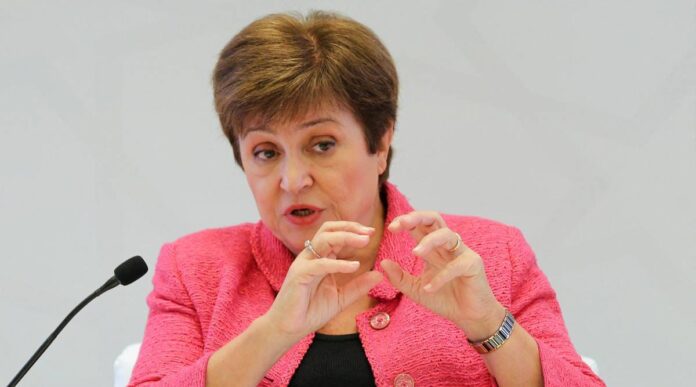Countries are expected to adopt deliberately planned process to wriggle out of high level inflation, and chronic currency crises, the International Monetary Fund (IMF) announced yesterday.
In its World Economic Outlook- A Rocky Recovery- report released yesterday, the Fund said aside inflation and currency crises, the world economy also received powerful blows from dislocations to energy and food markets as well as supply-chain disruptions.
Spurred by pent-up demand, lingering supply disruptions, and commodity price spikes, inflation reached multidecade highs last year in many economies, leading central banks to tighten aggressively to bring it back toward their targets and keep inflation expectations anchored.
The multilateral institution admitted that the world is entering a perilous phase during which economic growth remains low by historical standards and financial risks have risen, yet inflation has not yet decisively turned the corner.
More worrisome, it said, is that the sharp policy tightening of the past 12 months is starting to have serious side effects for the financial sector, as repeatedly warned might happen.
It predicted that financial institutions with excess leverage, credit risk or interest rate exposure, too much dependence on short-term funding, or located in jurisdictions with limited fiscal space could become the next target and so could countries with weaker perceived fundamentals.
The bank therefore stated that more than ever, policymakers will need a steady hand and clear communication plan to overcome these obstacles.
The Fund explained that although telegraphed by central banks, the rapid rise in interest rates and anticipated slowing of economic activity to put inflation on a downward path have, together with supervisory and regulatory gaps and the materialization of bank-specific risks, contributed to stresses in parts of the financial system, raising financial stability concerns.
“Banks’ generally strong liquidity and capital positions suggested that they would be able to absorb the effects of monetary policy tightening and adapt smoothly. However, some financial institutions with business models that relied heavily on a continuation of the extremely low nominal interest rates of the past years have come under acute stress, as they have proved either unprepared or unable to adjust to the fast pace of rate rises,” it said.
It said the unexpected failures of two specialized regional banks in the United States in mid-March 2023 and the collapse of confidence in Credit Suisse—a globally significant bank—have roiled financial markets, with bank depositors and investors reevaluating the safety of their holdings and shifting away from institutions and investments perceived as vulnerable.
The loss of confidence in Credit Suisse resulted in a brokered takeover. Broad equity indices across major markets have fallen below their levels prior to the turmoil, but bank equities have come under extreme pressure. Despite strong policy actions to support the banking sector and reassure markets, some depositors and investors have become highly sensitive to any news, as they struggle to discern the breadth of vulnerabilities across banks and nonbank financial institutions and their implications for the likely
The Fund therefore asked regulators and supervisors to act now to ensure these do not morph into a full- blown financial crisis by actively managing market strains and strengthening oversight.
“For emerging market and developing economies, this also means ensuring proper access to the global financial safety net, including the IMF’s precautionary arrangements, and access to the Federal Reserve repurchase facility for Foreign and International Monetary Authorities or to central bank swap lines, where relevant,” it said.
It advised that exchange rates should adjust as much as possible unless doing so raises financial stability risks or threatens price stability, in line with our Integrated Policy Framework.
“Policymakers have a narrow path to walk to improve prospects and minimize risks. Central banks need to remain steady with their tighter anti-inflation stance, but also be ready to adjust and use their full set of policy instruments—including to address financial stability concerns—as developments demand. Fiscal policymakers should buttress monetary and financial policymakers’ actions in getting inflation back to target while maintaining financial stability,” it added.
In most cases, governments should aim for an overall tight stance while providing targeted support to those struggling most with the cost-of-living crisis. In a severe downside scenario, automatic stabilizers should be allowed to operate fully and temporary support measures be utilized as needed, fiscal space permitting. Medium-term debt sustainability will require well- timed fiscal consolidation but also debt restructuring in some cases.
It said currencies should be allowed to adjust to changing fundamentals, but deploying capital ow management policies on outflows may be warranted in crisis or imminent crisis circumstances, without substituting for needed macroeconomic policy adjustment.



